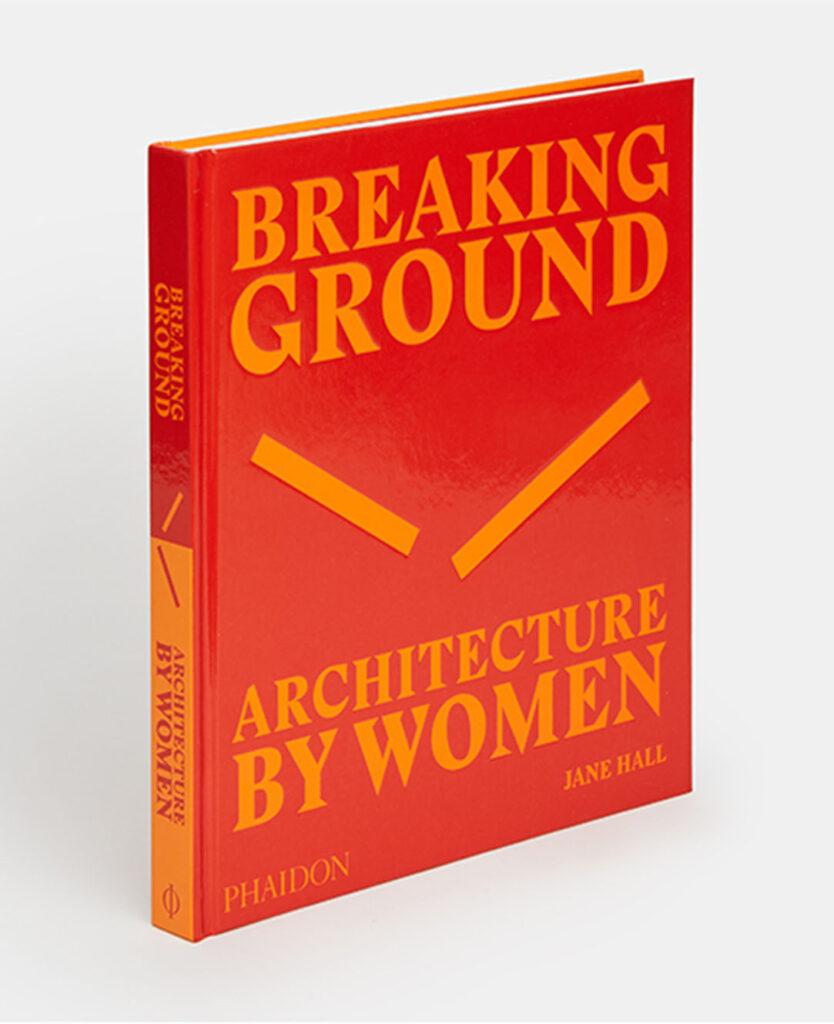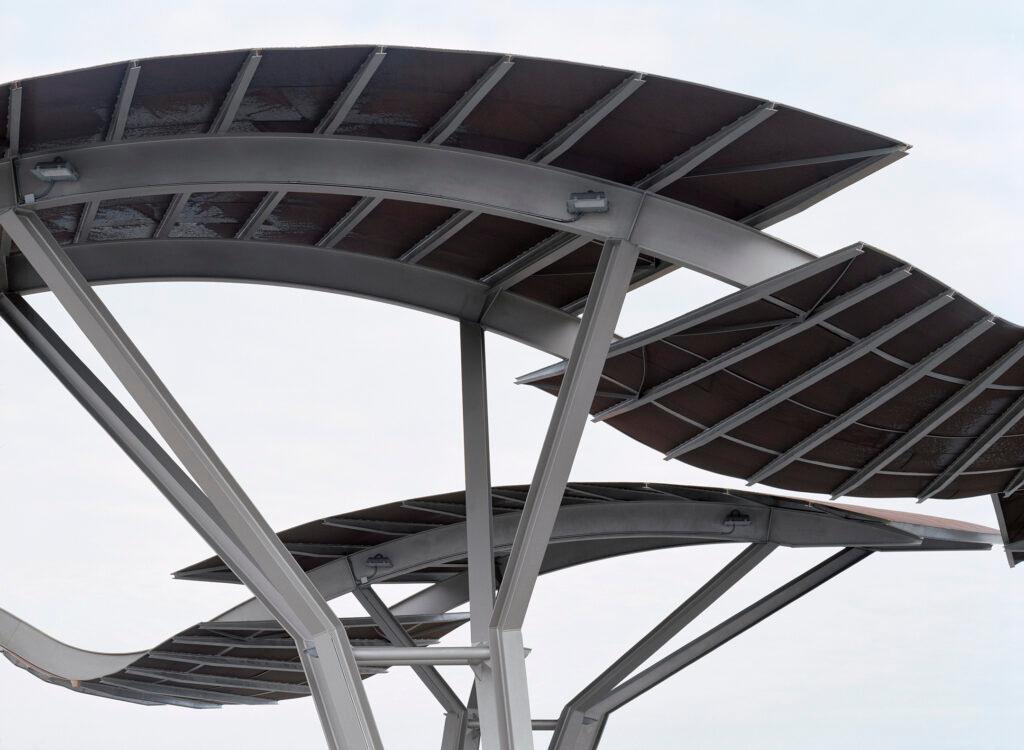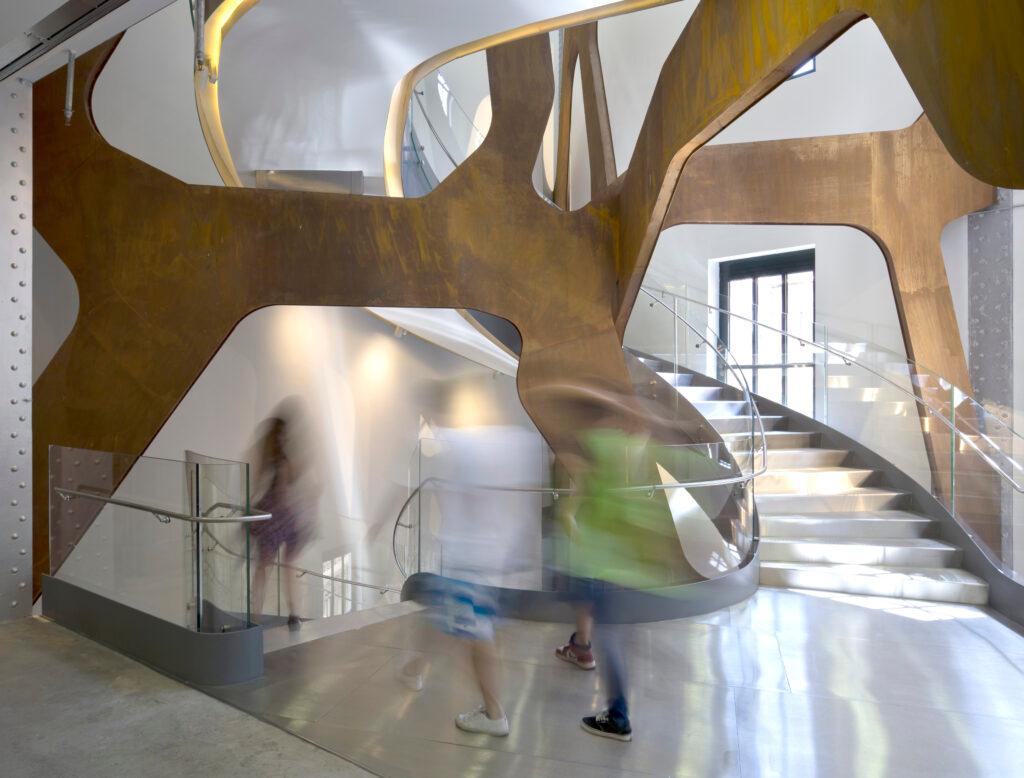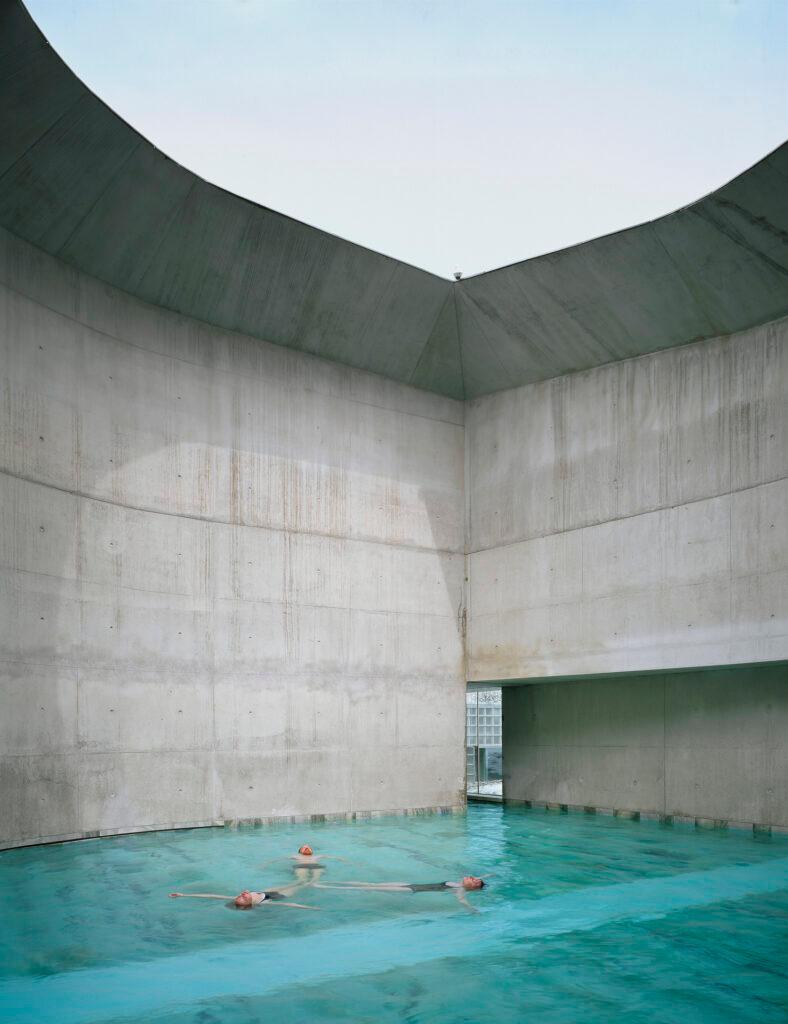
Bosque de Acero · Spain
· Cultural, Infrastructure
Diffusing the urban periphery into the natural landscape
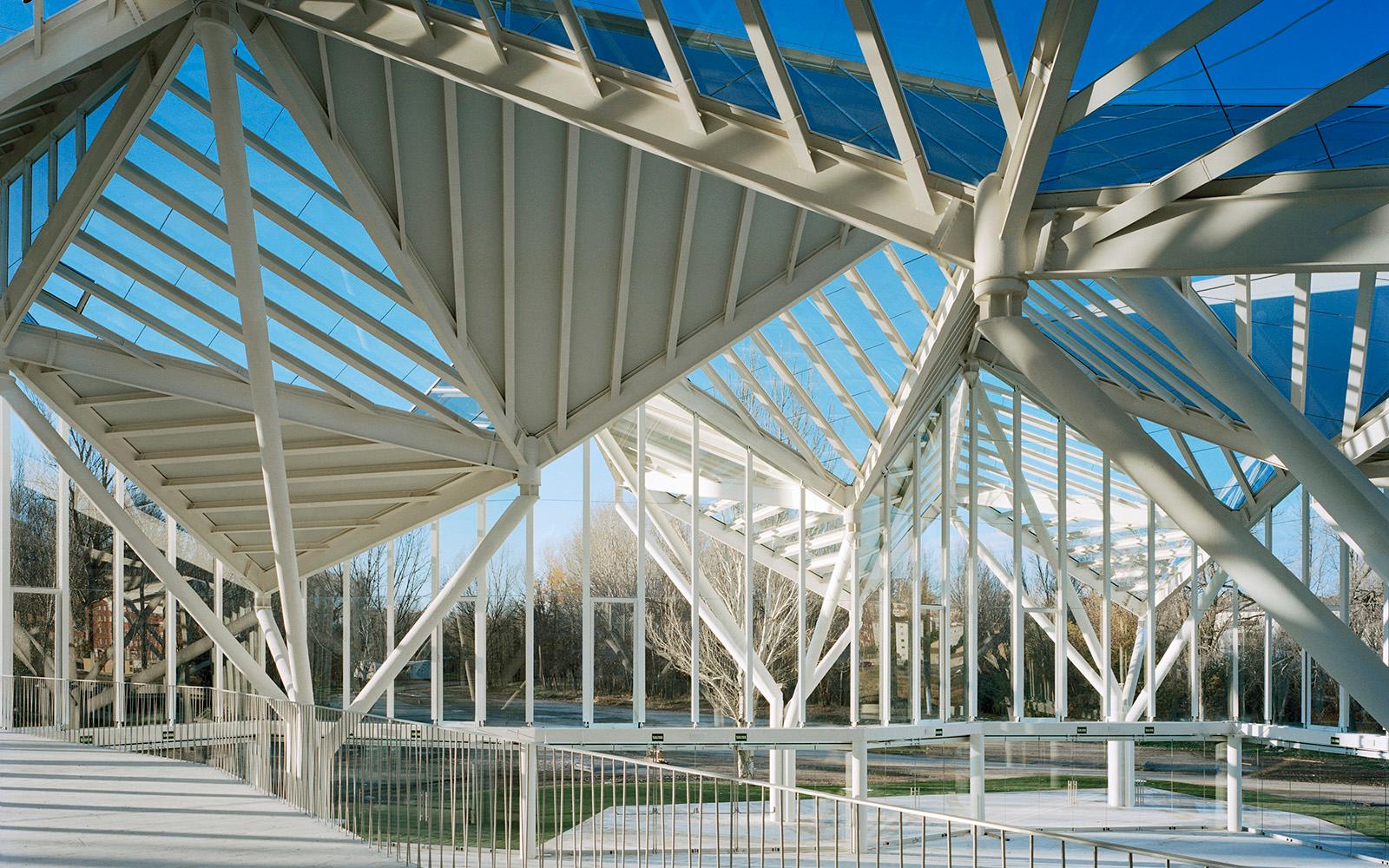
Pabellón multiusos Cuenca
This enclosed pavilion and surrounding park is situated on a 35-acre site bordered by the Júcar and Moscas Rivers and the historic Spanish city of Cuenca.
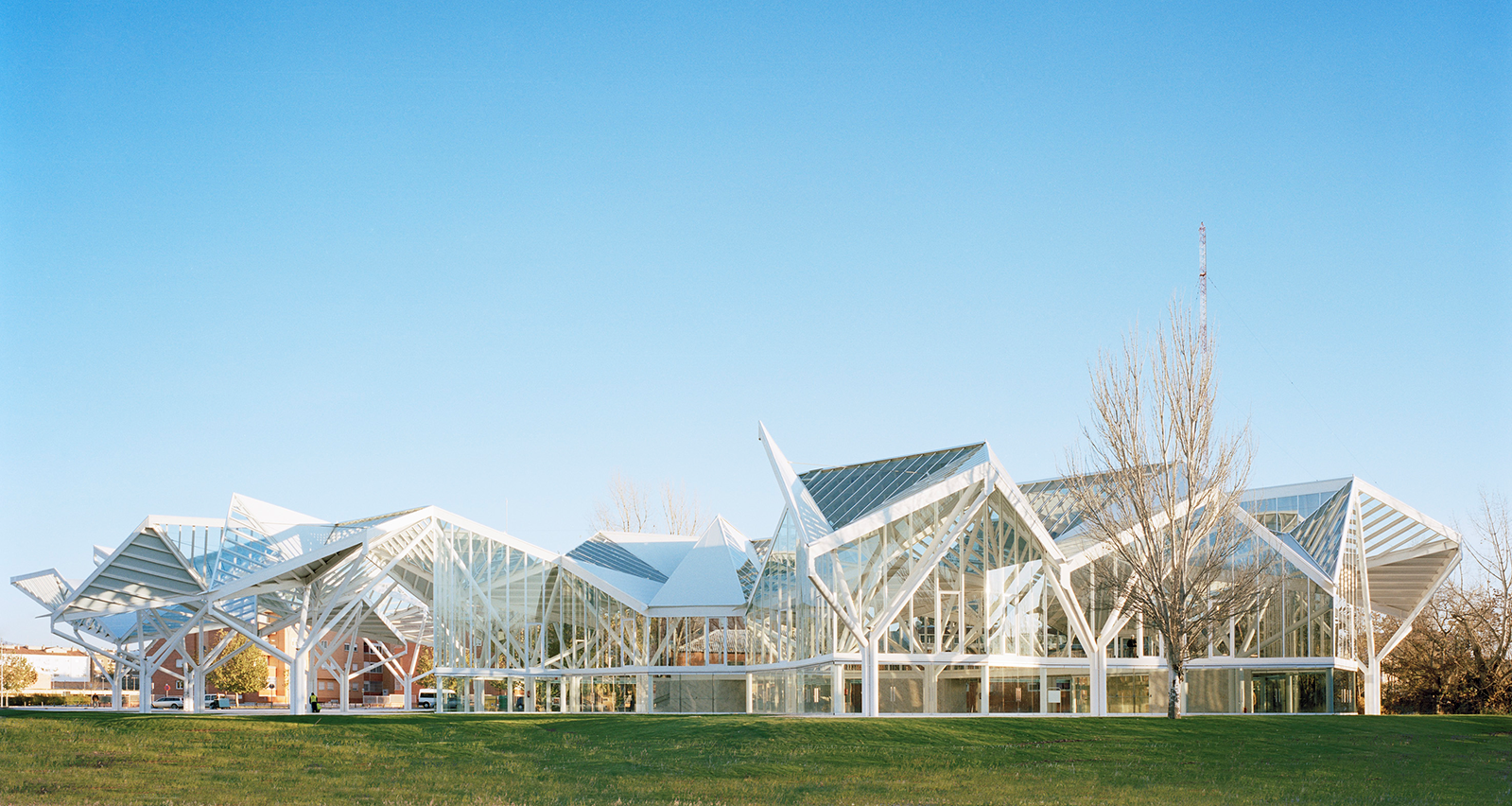
CONTEXT
The park project rehabilitates the abandoned natural landscape with the construction of performance spaces, a skating rink, a bar and restaurant in a cluster of historic buildings and a grand pavilion to be used for events and exhibitions, and during the city’s weekly markets and annual fair.
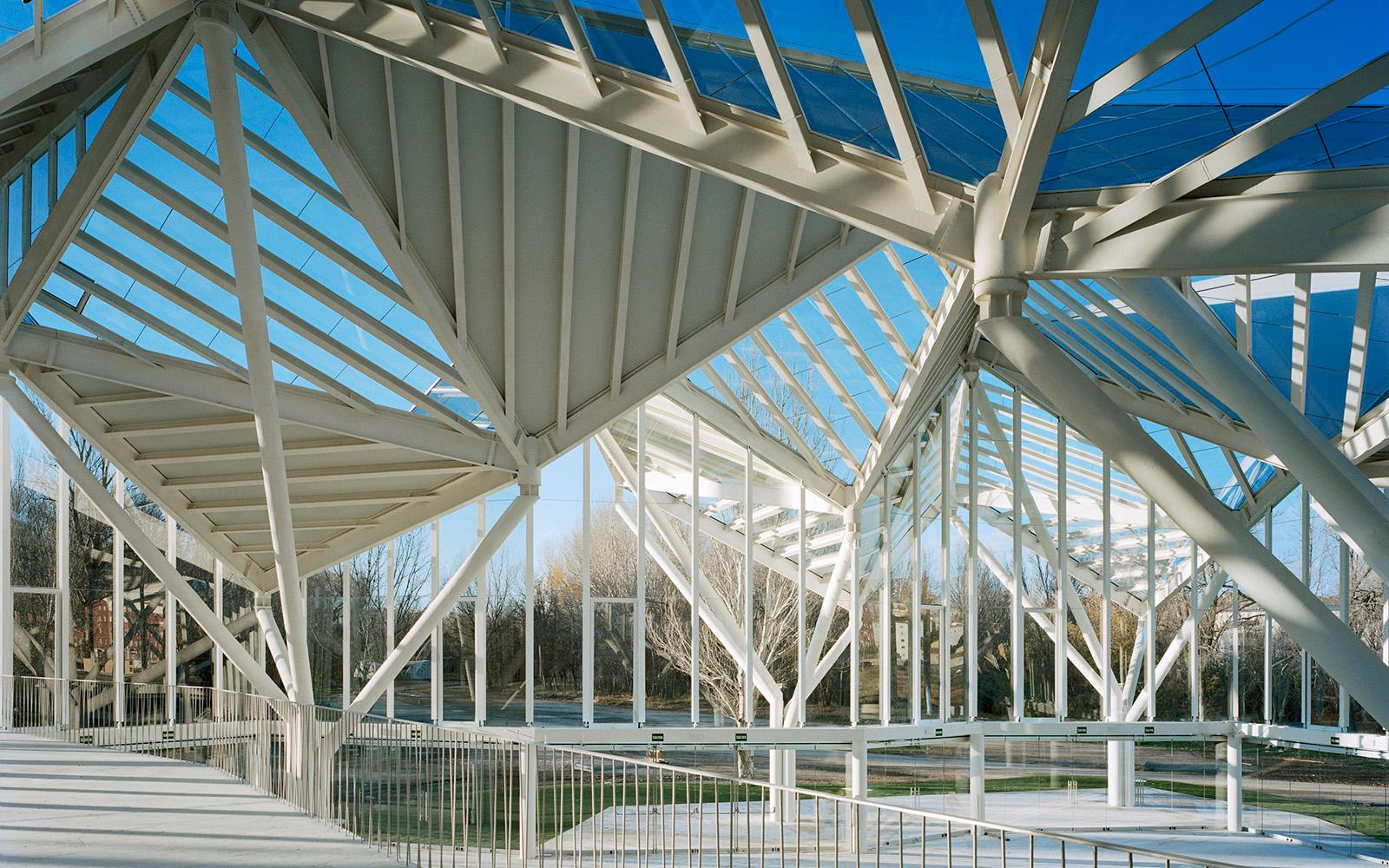
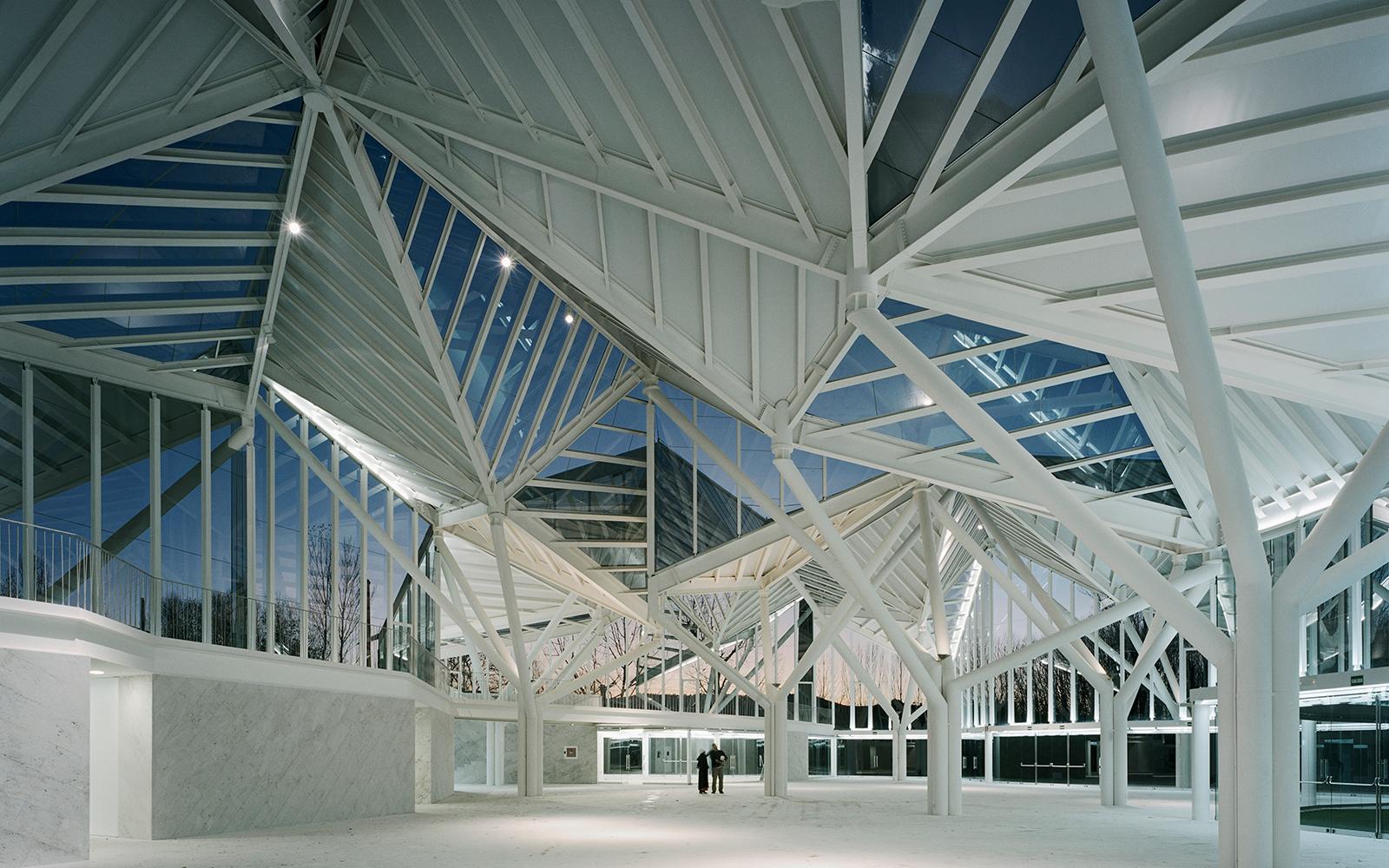
The pavilion, the primary architectural gesture of the project, is placed across the street from the historic city and is meant to act as a filter between the city and the park, diffusing the urban periphery into the natural landscape and acting as a theater for the activities of the park. Composed of 23 pentagonal modules that together form a structural network, this steel and glass pavilion addresses the relationship between the natural beauty of the landscape and the adjacent urban fabric.
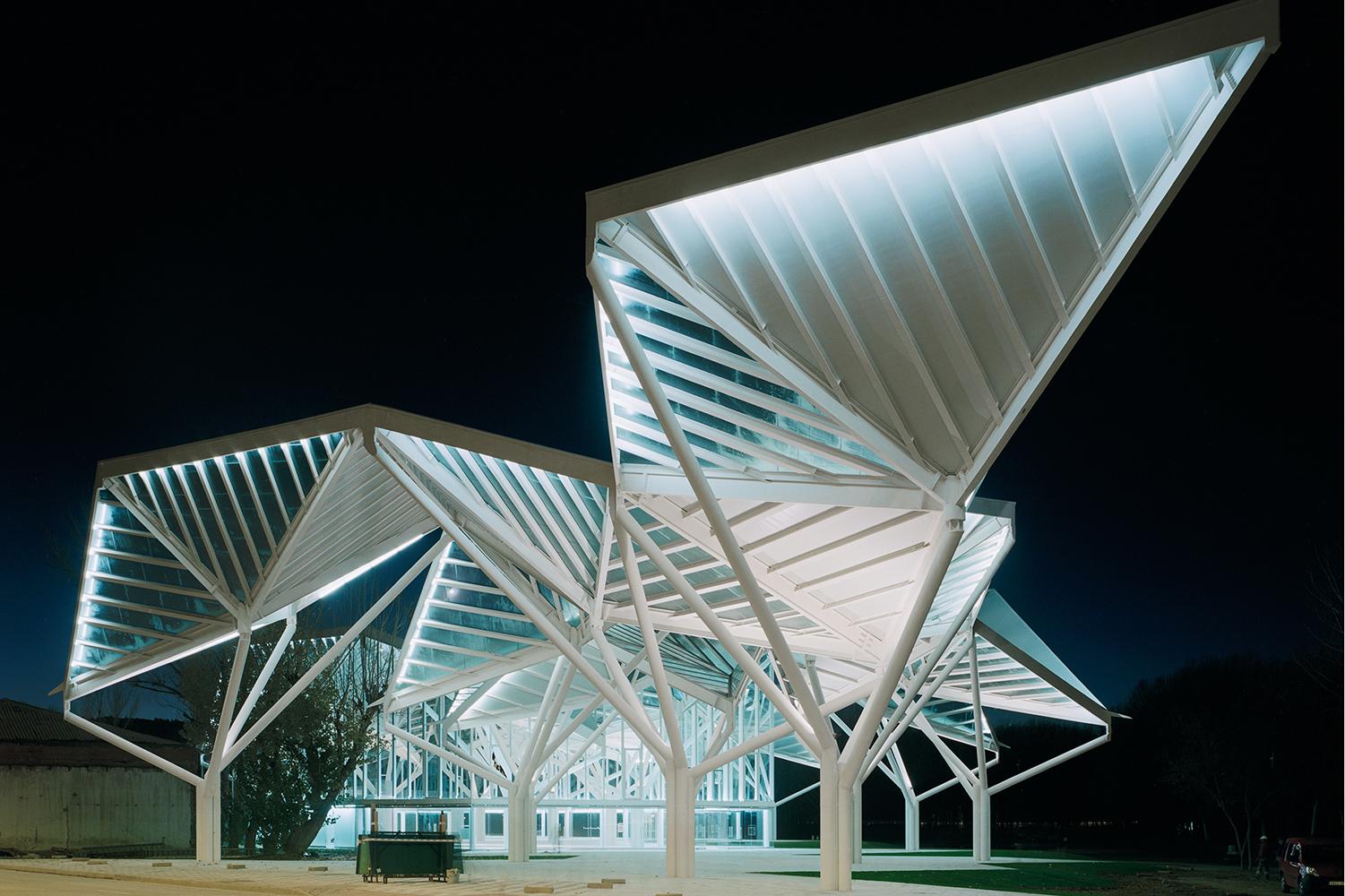
DETAIL
The geometrical form of these modules was born of a search for an equilibrium between the repetition of a unit element and a composition of a whole, which in the end creates a modular structure in which the module is no longer distinguishable. The resulting space appears forest-like from the interior but crystalline from the exterior. It is a building seemingly composed of fragments, but which creates an open, unified and continuous space.
CLIENT
Cuenca City Council
LOCATION
Camino de la Resinera s/n, Cuenca, Spain
BUILDING SIZE
39,847 sqft
LOT SIZE
275,556 sqft
ARCHITECTS
Belén Moneo, Jeffrey Brock
ARCHITECTS OF RECORD
Rafael Moneo
TECHNICAL ARCHITECT
Vidal Gutiérrez
MODEL
Moneo Brock
3D MODEL
Andrés Barrón
STRUCTURAL ENGINEER
Jesús Jimenez, NB35, Cristina Alcazar
CONTRACTOR
Acciona
